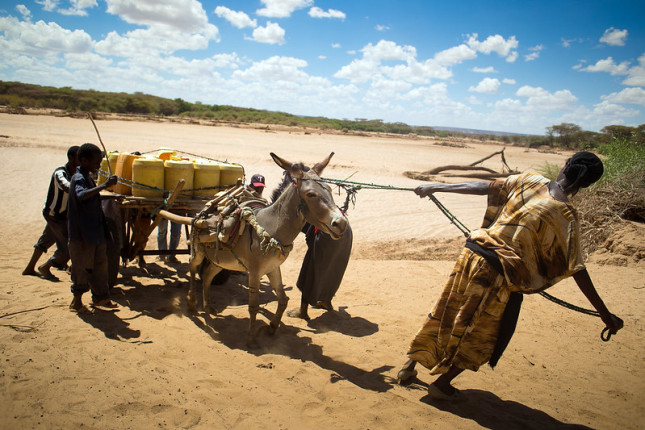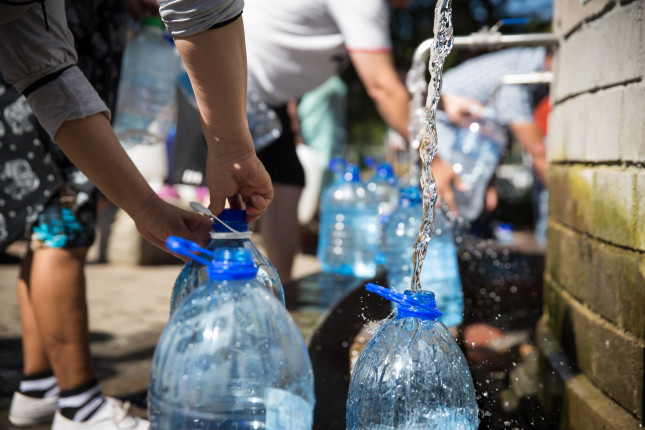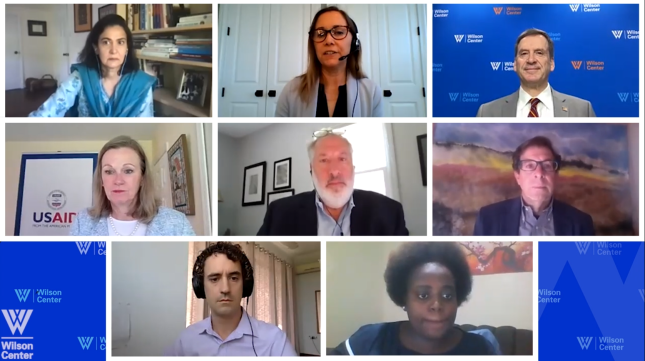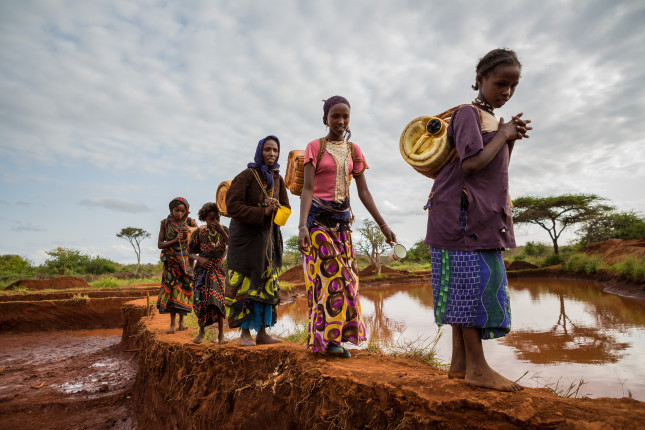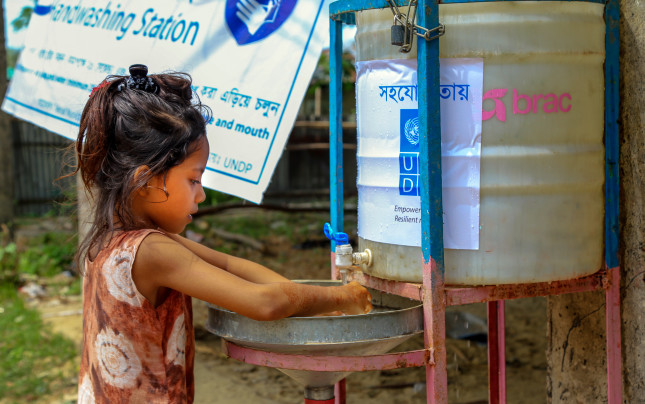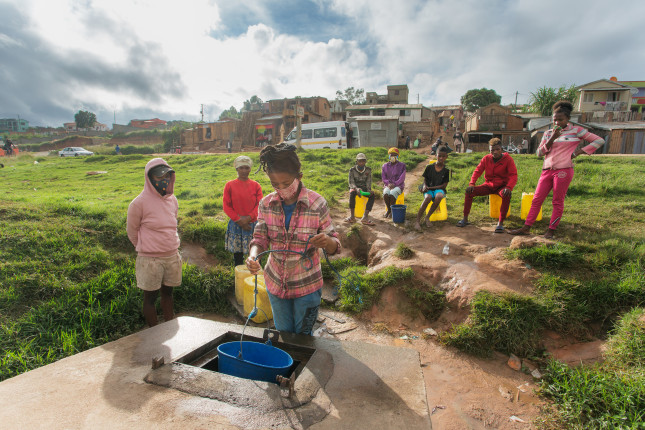-
The Top 5 Posts of June 2021
›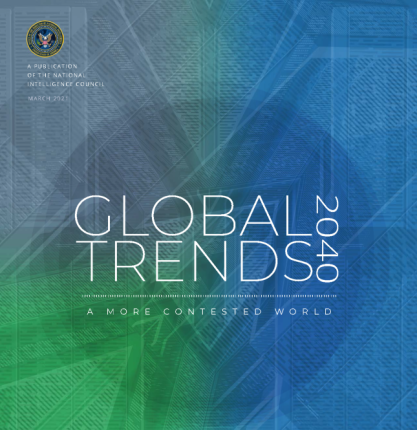
In our top post for June, Steve Gale shares 5 consequences out of the National Intelligence Council’s recently released Global Trends report that development actors should be particularly attuned to. In addition to the “long tail” of the COVID-19 pandemic, the report recognizes the environmental consequences of climate change, including unprecedented numbers of wildfires, increased intensity of tropical storms, and sea-level rise. As a result, migration will be more pronounced and require more targeted aid approaches as demographics shift.
-
From Rhetoric to Response: Addressing Climate Security with International Development
›
Over the past decade, our understanding of how climate change affects conflict and security has advanced considerably. Yet, how to best address the overlapping challenges of climate change, conflict, and human security remains an open question. In an article published in World Development, I address this topic by examining how climate security discourses inform development policy and, in turn, how the structures of development enable or constrain institutional capacity to address climate security. This research identifies not only the unique barriers the development sector must overcome, but also the ways in which the most common framings of climate change (i.e., as a threat multiplier) limit the scope for policy and programming.
-
Will COVID-19 Accelerate Urban Water Security or Insecurity?
›
“Never let a good crisis go to waste,” said Winston Churchill. Like other acute stressors, the COVID-19 pandemic acts as a multiplier of chronic or pre-existing vulnerabilities, such as the challenges of servicing rapidly growing informal populations, particularly in urban settings. This multiplier effect may accelerate water insecurity at unprecedented levels. However, together with UNESCO Intergovernmental Hydrological Program (IHP), we’re reflecting on the possibility that COVID-19 can act as an accelerator of positive action toward achieving Sustainable Development Goal 6 on water. The nexus between issues and urban water security is particularly important.
-
50 Years and Billions Spent: Achieving Universal Access to Water, Sanitation, and Hygiene (WASH) Within Reach
›
“Reporting on the progress made, the challenges that remain, and impact of COVID-19 on the WASH sector is crucial,” said Ambassador Mark Green, President, Director, and CEO of the Wilson Center and former USAID Administrator, during his opening remarks at a recent event hosted by the Wilson Center and Circle of Blue to discuss the WASH Within Reach project.
-
Translating Urgency Into Action on Water, Climate, and Security
›
“We need to devote our full attention to the relationship between water, climate, and security, increase understanding of the issue, and take urgent action,” said Carola van Rijnsoever, Director of Inclusive Green Growth at the Netherlands Ministry of Foreign Affairs, at a recent Hague roundtable on building a transatlantic coalition for climate action on water and security challenges in countries of risk.
-
Innovation in Financing Brightens WASH Galaxy: Funding for Water, Sanitation and Hygiene Starts to Arrive Faster, With Clearer Requirements
›
People devoted to financing water, sanitation and hygiene in developing nations worried for much of 2020. Utility customers stopped paying their water bills. Funders altered their priorities. Heads of state turned their attention to other virus-related emergencies.
But did COVID-19 affect funding enough to slow progress toward universal access to clean water, safe sanitation, and hygiene? And if it did, by how much?
-
Pandemic Brings WASH to Rare Inflection Point: Despite Fears of Collapse, Water, Sanitation, and Hygiene Draw Closer to Epic Goal
›
Until 2016, the agrarian residents of east Kenya’s Kitui county had never encountered a water quality monitor like Mary Musenya. Wearing a bright blue company jersey and furnished with sample bottles and plastic trays, the young Kenyan is a water safety officer for FundiFix, a tiny rural water supply service company. She is one of 20 staff who manage 130 pumps, plus pipes and water tanks that serve 82,000 people across a 1,000 square-mile service area in Kitui and Kwale counties.
-
Digital Water Diplomacy: Keeping Water Dialogues Afloat
›
In 2020, the world experienced the convergence of the global water and climate change crises, the COVID-19 pandemic, and economic recession. The compounded emergencies hit even well-prepared countries hard. For the more than 50 percent of the world’s population that relies on transboundary freshwater sources for their drinking water, the renewed urgency for access to water for sanitation raised additional challenges. Effectively responding to the crises demanded an elevated degree of communication and coordination between neighboring states precisely when coordination and collaboration processes encountered new barriers to effective transboundary engagement. As neighboring states instituted travel restrictions, water dialogues had to adapt through digital water diplomacy processes.
Showing posts from category water security.


